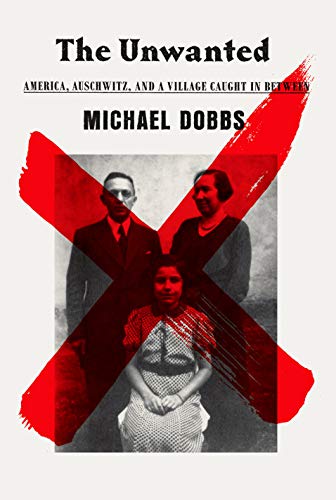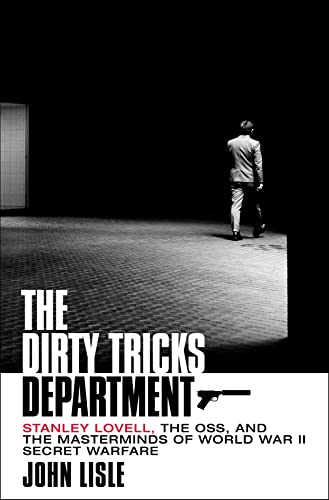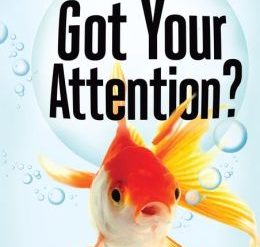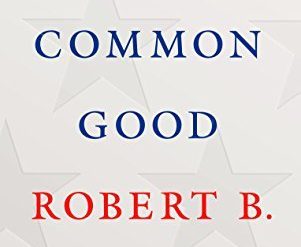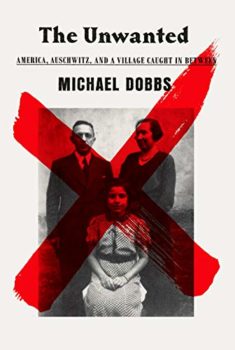
Did FDR betray the Jews of Europe? Did he turn a blind eye toward the Nazi “Final Solution” by preventing thousands of Jewish refugees from entering the United States? Clearly, there is ample evidence that President Roosevelt resisted pressure to admit German Jews fleeing from the Nazis, and on more than one occasion. But the context in which he made those decisions suggests he had little choice. That’s one of the dominant themes of Michael Dobbs’s illuminating new book on the Holocaust, The Unwanted.
Estimated reading time: 6 minutes
Dobbs’s subject is the immigration policy of the United States, focusing on the years 1938 to 1943. These years spanned the period between Kristallnacht (November 9-10, 1938) and October 23, 1941, when Reichsführer “Heinrich Himmler issued a decree banning Jewish emigration from the Reich.” The official Nazi practice from that date onward was systematic annihilation rather than expulsion.
The Unwanted: America, Auschwitz, and a Village Caught in Between by Michael Dobbs (2019) 368 pages ★★★★★
Did FDR betray the Jews of Europe?
Americans tend to seek simple answers to complex questions. But that’s not possible in evaluating the response of the United States government to the plight of Jewish refugees from Nazi Germany. Many believe that FDR deliberately and callously rejected efforts to admit thousands of refugees on the St. Louis and other ships and that he repeatedly refused to increase immigration quotas that would permit many more to be saved. But did FDR betray the Jews? Dobbs makes it abundantly clear that the President had little or no choice in these matters. Four out of five Americans opposed increased immigration; many were especially hostile to Jewish refugees. And Congress was dominated by isolationists, many of them overtly anti-Semitic. FDR was convinced that any effort to circumvent the immigration quotas laid down in decades of restrictive policies would trigger an effort by Congress to restrict the inflow of immigrants even more harshly.
For FDR, the priority was to steer the United States toward its inevitable place among the Allies before Pearl Harbor and, after that, to keep Congress from shrinking the immigration quotas. Despite often intense pressure from his wife, the organized American Jewish community, and sympathetic allies such as the Quakers, he did in fact decline to open the rolls wider. But that practice must be seen in the wider context of the times. FDR believed the country was doing the most it possibly could to accommodate Jewish refugees.
The United States admitted more Jewish refugees than any other country except Palestine
As Dobbs reports, from 1933 to 1942, “162,575 ‘Hebrew immigrants’ had been admitted to the United States since Hitler’s rise to power in Germany. A hundred thousand had arrived in the three years following Kristallnacht. Adding visitor visas, the total number of self-identified Hebrew admissions for the decade came to 204,085.” This number was far greater than that of any other country. “The only territory that accepted more Jews than the United States during the same decade was British-administered Palestine.”
It’s well known that the US State Department under Cordell Hull (1933-1944) was riddled with anti-Semitism. Clearly, some of the consular officials who served on the front lines in Europe in vetting visa applicants were themselves deeply prejudiced and dragged their feet when Jews appeared before them. But Dobbs reports that others played key roles in facilitating the escape of German Jews. Similarly, some officials based in Washington used every bureaucratic trick in the book to slow down or halt the admission of refugees from the Nazis. But others weighed in in support of the Jews, and often with success, sometimes with strong support from the President himself. It’s clear that, whatever else might be said of FDR’s actions, he was not acting dishonorably or in any way that might be termed prejudiced. To the question, Did FDR betray the Jews?, the direct answer is No.
Forty-one individual human beings caught up in the Holocaust
To bring his subject down to human scale, Dobbs illustrates the impact of the rapidly shifting currents of US immigration policy on the tiny Jewish community of a village called Kippenheim, near the French border in western Germany. In 1933, 144 Jews lived there among a total population of about 1,800. By the end of the decade, only forty-one remained in the village. And Dobbs keeps them all squarely in his sights as he traces American policy through those years.
A teenage girl survived. Millions didn’t.
The Unwanted opens and closes through the eyes of Hedy Wachenheimer. Fourteen years old, she witnessed the madness unleashed throughout Germany by Kristallnacht. Although “she was used to being treated like a pariah,” that event proved to be a watershed. Her life and that of her family and friends was never the same afterward. Yet through good fortune and the resolute action of loving parents, Hedy not only survived but, six years after fleeing Germany, she returned in an American military uniform as a translator for the Occupation.
Because her parents had forced her to leave on a Kindertransport to England (May 18, 1939), Hedy was among the survivors of Kippenheim’s Jewish community. One hundred had left the village before her, although many simply moved to larger towns and cities and were later sent to the death camps. But most of those who remained after that event were not so lucky. Thirty-one were gassed at Auschwitz. They were among the 6,500 Jews deported from the state of Baden to concentration camps in unoccupied France in October 1940. “Roughly one in four of the deportees died [there] . . ., many from typhus or malnutrition. Four out of ten were deported to Auschwitz. Eleven percent found refuge overseas, mostly in the United States. A further 12 percent, mainly children and elderly women, succeeded in hiding out in France until the end of the war.”
About the author
Michael Dobbs is best known on both sides of the Atlantic as the author of a book called House of Cards, on which both the British and American hit TV shows were based. At various times he has been involved in politics, journalism, advertising, and public speaking. He holds a doctorate from Harvard and Tufts Universities and sits in Britain’s House of Lords.
For related reading
I’ve reviewed a number of other excellent books about the Holocaust. You can find them at Good books about the Holocaust, including both fiction and nonfiction. I especially recommend Anatomy of a Genocide: The Life and Death of a Town Called Buczacz by Omer Bartov, which is reviewed at The Holocaust under the microscope of history. Like Dobbs in The Unwanted, Bartov focuses on a single community although one far to the east in the Polish-Ukrainian borderlands.
You might also be interested in:
- 25 worthy books about Jewish topics
- 10 top nonfiction books about World War II
- 20 top nonfiction books about history
- Top 20 popular books for understanding American history
And you can always find my most popular reviews, and the most recent ones, on the Home Page.

